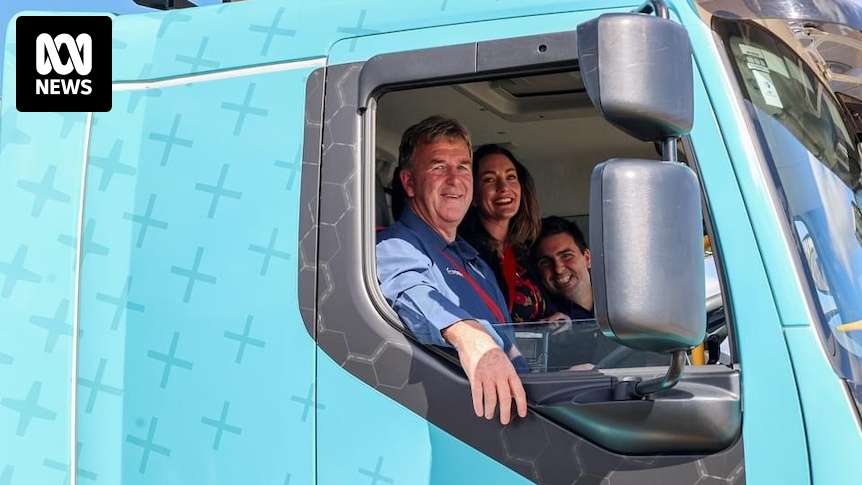Definitely a good move forward imo, but I do wonder about the fire risk. With all the garbage truck fires that have been popping up in the last few years (usually caused by batteries being thrown into curbside rubbish), would a fire in the back of an EV fire truck be better, worse, or about the same as a fire in a normal diesel rubbish truck?
Also, since EVs in general are so quiet, I’m also a little worried that they’d be a fair bit more dangerous. Not hearing a Tesla or similar EV is bad, but a 20 ton machine packed with however many tons of rubbish they hold would be considerably worse. I suppose they don’t generally reverse, and they’re a lot bigger so definitely easier to spot, but with really any conventional truck, they’re easy to see and hear, you know when they’re there even if you can’t see them. With an EV truck, not so much.
An EV fire that isn’t caused by the drive battery usually doesn’t affect it. The drive battery is a very dense insulated block near the bottom of the vehicle, so it takes a surprising amount of external heat to get it to burn.
Attaching a noisemaker to a vehicle is a simple fix and they’d do that if the trucks actually turned out to be silent.
I vote the noise maker be Jimmy Carr’s laugh on repeat, “ha, ha, ha, harrrr!!”
The brakes assuning they’re pneumatic still would still make a lot of noise, I was thinking it’s great because you won’t hear the truck coming for 45 minutes before it gets to you.
The battery pack wouldn’t be amongst the crushing section of the truck so the fires wouldn’t be much worse then the 900 litres of diesel and 150 litres of hydraulic oil that could go up in a regular rubbish truck.
My only concern as with all things electric for a solution is are we just pushing the environmental impact up the road. Will all these batteries become a hazard, will the increased requirements to charge all these vehicles increase power plant emissions worsening the effects of coal over regular vehicle emissions?
Especially when we look at modern diesel engines with a DEF system pushing out mostly water and nitrogen out the exhaust with very little NOx
I hear the garbage truck brakes way before I hear the engine.
Electric vehicles do put less load on the brakes thanks to regenerative charging. I bet the trucks will still be plenty loud in other ways as well. The lifting and compaction mechanisms alone can be heard a ways away.
@Aussiemandeus @Baku as a country that struggled to recycle glass how are we going to recycle batteries that are infinitely more toxic.
There is this push for all Aussie car owners to have electric, but we have no commitments to improve electrical infrastructure, why is it the individuals responsibility to make changes, where is the push for better public transport.
We model our society and cities after the US, with sprawling suburbs and car centric neighbourhoods, why not make it easier to choose a bus over car a train over gridlock traffic. Focus on a better society, better urban planning and people will make better choices around cars.
That’s what I mean about kicking the can down the road.
We’re jumping to electric vehicles so fast with very few logistical solutions.
May as well go to nuclear and deal with that waste. Save the steps and in 50 years we will find. A solution for it
May as well go to nuclear and deal with that waste. Save the steps and in 50 years we will find. A solution for it
Too slow to build, too expensive, and too mired in politics and legal issues. So the only result will be that coal and gas stick around for even longer. Which is precisely why conservative parties are pushing nuclear.
To slow to hard was the issue 20 years ago.
The tree planted 20 years ago is better than the tree planted today but in 20 years time today’s tree is there
The previous LNP government could not build car parks.
There is zero chance there will be nuclear power plants in Australia in the next 20 years.
LFP batteries are taking over from the older NMC chemistry, and LFP doesn’t have those expensive toxic materials in them.
The battery pack wouldn’t be amongst the crushing section of the truck so the fires wouldn’t be much worse then the 900 litres of diesel and 150 litres of hydraulic oil that could go up in a regular rubbish truck.
The fire could actually be very much worse. A fuel/oil fire is Class B, which can be extinguished with CO2 or with foaming agents. You can add foam to a regular fire hose and lay down a layer of it to smother the fire. A battery is a Class D (metal) fire, which can’t be extinguished with anything common.
Metal fires are some scary shit to be around. It’s risky for firefighters to even use a fire hose to cool a burning electric vehicle because lithium releases hydrogen gas and heat on contact with water. Usually you have to just wait for a metal fire to burn itself out.
As long as the battery’s undamaged it’s not an issue, but a burning garbage truck?
Yeah that was what I was thinking.
but a burning garbage truck?
Yeah, there’s been a few cases of the compactors in rubbish trucks causing fires after crushing things that people shouldn’t be putting in their landfill bin, ie car batteries, old phones, etc). As soon as the fire is noticed, the trucks generally dump their load onto the road, nature strip, really whatever is available. Obviously the trucks batteries wouldn’t be crushed by the compactor, but my concern is mostly whether an EV truck would cause a nastier fire/explosions than a diesel one in the event of a fire somehow going unnoticed, or hell, even if someone broke into a truck depot and torched one (crazier things have happened…)
I’m not saying they’re less worse, but the batteries are better protected from fire then diesel and fuel.
I’m speaking as a professional heavy vehicle and machinery mechanic. It’s nothing to install fire suppression systems if it is such a big worry.
The advantage of EVs is they’ll get cleaner over time. If you bought one of those Nissan Leafs in 2012, you would have charged it using quite a lot of coal generated electricity. That same car today would use probably half coal and half solar. As coal continues to exit the grid and we build out more solar, emissions from EVs already on the road will keep dropping.
If you buy a diesel today, it’s still going to be burning diesel in 2040.
will the increased requirements to charge all these vehicles increase power plant emissions worsening the effects of coal over regular vehicle emissions?
No, that’s never going to happen. A huge coal power plant is always going to operate at a higher efficiency than a little engine inside a car or truck. It’s the efficiency of scale. And that’s the starting point! Our grid is already nearing 50% renewable in some places and it’s rising.
The brakes assuning they’re pneumatic still would still make a lot of noise
They would surely be regenerative
Sounds a pretty good use case for an electric truck; low speeds with constant stop/start driving is well suited to electric vehicles and a known route means range is much less of an issue (just spec it with enough to cope with expected decline over its service life and you’re set). The harder part will be making sure there’s enough charging capacity in the depots to cope with a fleet of trucks, I would expect upgrades will be necessary for that.






